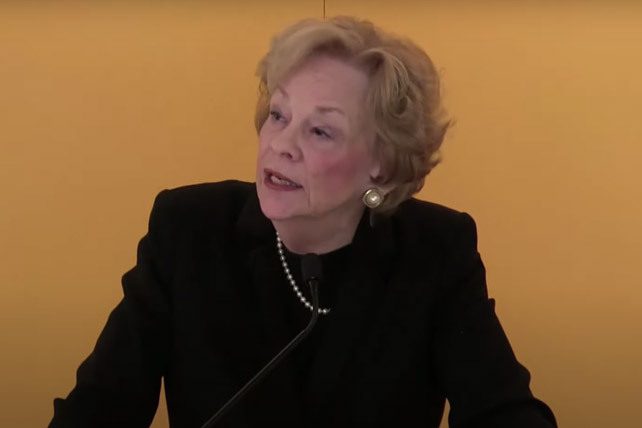Pastors who want to avoid abusing their authority must practice self-examination and must do so in trusted community, says Christian psychologist Dr. Diane Langberg. Langberg also emphasizes the importance of church leaders seeing themselves as sheep under the authority of the one true Shepherd, Jesus.
“All shepherds are sheep,” said Langberg, speaking at the Church Mental Health Summit Monday, Oct. 10. “You are to be working out your life under the good and great Shepherd as you shepherd his sheep.”
Diane Langberg on How Church Leaders Can Avoid Abusing Their Authority
Diane Langberg is a Christian psychologist who has expertise in trauma recovery. She is the author of “Redeeming Power: Understanding Authority and Abuse in the Church.” Langberg appeared at the Church Mental Health Summit Monday where she gave a talk titled, “Understanding Authority and Abuse in the Church.” The summit, a free, one-day event, was a joint venture from Spiritual First Aid and Hope Made Strong and featured speakers including Rich Villodas and Kayla Stoecklein discussing a variety of topics related to mental health and the church.
Langberg began by explaining that power is part of the image of God in people. As such, power is something God wants his children to use in order to care for and serve others. “And obviously, it’s gone awry,” said Langberg. “Something that’s part of the image of God in us has often been used to hurt people.”
People frequently do not have a clear understanding of what power is and how it works, said Langberg. “Leaders often feel powerless when they’re not, so it gets confusing for many people,” she said, going on to define power as “the ability to have an impact.” Because every person has a voice and the ability to influence others, all people have power to some extent.
Those who abuse power are sometimes aware, and sometimes not aware, that they even have it. “It’s a very foggy area,” she said. Langberg also clarified that the power that church leaders have is not the same across the board, but varies depending on people’s personalities and the personalities of their ministries. That being said, leaders in any ministry position must be aware of how they exercise power. Do they use their power to serve others or to serve themselves?
Throughout the interview, Diane Langberg gave Jesus as a model and reference point for how leaders should use their power. Jesus begins the Great Commission in Matthew 28:18-20 by saying, “All authority in heaven and on earth has been given to me.”
“So any power that you have and that I have in any circumstance,” said Langberg, “is literally a derivative of his power, which means it is to be used with his likeness, with his character, with his goals.”
The psychologist said that examining unhealthy churches is helpful for learning how to build healthy ones. In unhealthy church systems, there are usually a few people, often men, in a “closed sacred circle,” who have a lot to gain from remaining in power. Everyone else in the organization is expected to follow them without question; no one cares if the followers are wounded or hurting.
RELATED: Mike Cosper: What ‘The Rise and Fall of Mars Hill’ Means for Church Leaders
Church leaders who desire to be healthy should behave in opposite ways. “Jesus was extraordinary in welcoming the least of these,” said Langberg. For example, Matthew 19:13-14 says, “Then people brought little children to Jesus for him to place his hands on them and pray for them. But the disciples rebuked them. Jesus said, ‘Let the little children come to me, and do not hinder them, for the kingdom of heaven belongs to such as these.’” In a large, busy church it is easy to overlook those who are vulnerable, said Langberg, “because after all, they are just the little ones, and you’re talking to important people or whatever.”

